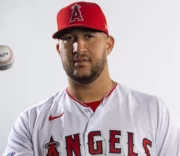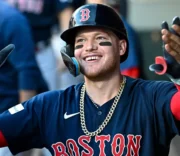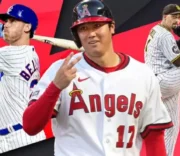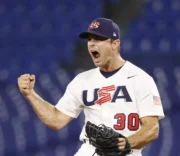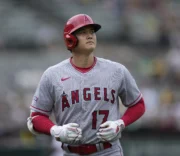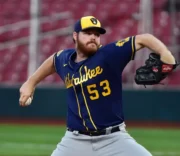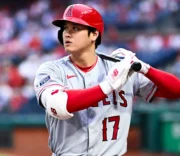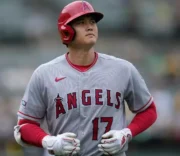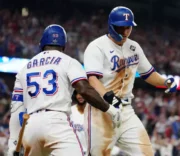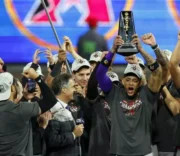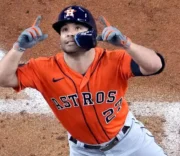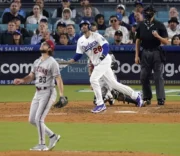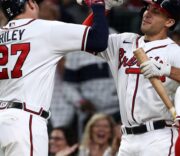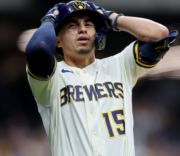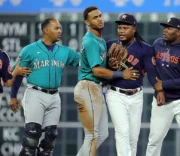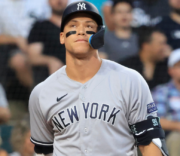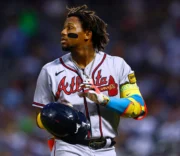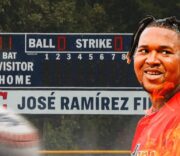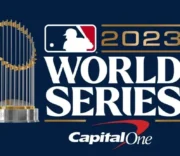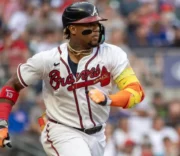
The Tampa Bay Rays recently completed the 2023 MLB Draft, aiming to strengthen their roster with promising young talents. In this comprehensive review, we will delve into the players drafted by the Rays, their potential impact, and the signing status of each pick. Additionally, we’ll explore the intricacies of bonus pools, pick values, and how they influence teams’ decisions during the draft process.
The Draft and Signing Process
As with every MLB team, the Rays had until July 25 at 5 p.m. ET/2 PT to come to terms with their drafted players. However, certain players with exhausted collegiate eligibility could sign at any time up until one week before the next year’s Draft. Moreover, draft-and-follow picks, high school and junior college players selected after the 10th round who attend a two-year college after the Draft, had the opportunity to sign with their respective teams for up to $250,000 up until a week prior to the following year’s Draft.
It’s essential to note that players drafted from Round 11 onwards do not count against the bonus pools unless their signing bonus exceeds $150,000. Any amount exceeding this limit would count against the team’s allocated pool.
The Rays’ Draft Picks
Let’s take a closer look at the players selected by the Tampa Bay Rays in the 2023 MLB Draft.
1st Round (19th Pick): Brayden Taylor, SS, TCU
The Rays made a significant investment in Brayden Taylor, a talented shortstop from TCU. The pick value for Taylor was $3,880,100, and he signed for the same amount. Being a first-rounder, Taylor’s performance and development will be closely watched as he progresses through the Rays’ farm system.
“I’m thrilled to be part of the Rays organization; it’s a dream come true”, – said Taylor.
Competitive Balance Round A (31st Pick): Adrian Santana, SS, Doral Academy (FL)
The Rays went on to secure another talented shortstop, Adrian Santana, from Doral Academy. Santana signed for $667,650 below slot value, demonstrating the Rays’ strategic approach to maximize their draft pool.
“Joining the Rays feels surreal; I’ve always dreamed about this moment”, – Santana said with excitement.
2nd Round (55th Pick): Colton Ledbetter, OF, Mississippi State
In the 2nd round, the Rays picked Colton Ledbetter, an outfielder from Mississippi State. Ledbetter’s outstanding performance in college, where he showcased a disciplined approach at the plate and consistent hard contact, made him an appealing prospect. The Rays secured his services with a signing bonus of $1,297,500, which is slightly below the pick value of $1,509,800.
3rd Round (88th Pick): Tre’ Morgan, 1B, LSU
As of now, the Rays have not yet reached an agreement with Tre’ Morgan, the first baseman from LSU selected with the 88th overall pick value $783,800. Negotiations are still ongoing, and both parties aim to find common ground before the signing deadline.
4th Round (120th Pick): Hunter Haas, SS, Texas A&M
The Rays successfully signed Hunter Haas, the shortstop from Texas A&M, for $534,000, just below the pick value of $552,500. Haas’ versatility and defensive prowess make him an exciting addition to the Rays’ farm system.
5th Round (156th Pick): Trevor Harrison, RHP, J.W. Mitchell HS (FL)
Currently, the Rays have not yet reached an agreement with Trevor Harrison, the right-handed pitcher from J.W. Mitchell High School. Negotiations are underway, and both parties remain optimistic about finding common ground.
6th Round (183rd Pick): T.J. Nichols, RHP, Arizona
The Rays signed T.J. Nichols, the right-handed pitcher from Arizona, for $304,800, slightly below the pick value of $307,300. Nichols’ impressive college career and potential for growth made him an attractive prospect for the Rays.
7th Round (213th Pick): Owen Wild, RHP, Gonzaga
Owen Wild, the right-handed pitcher from Gonzaga, signed with the Rays for $238,100, just below the pick value of $240,600. His skill set and competitive spirit will undoubtedly contribute to the Rays’ pitching depth.
8th Round (243rd Pick): Drew Dowd, LHP, Stanford
The Rays added Drew Dowd, a left-handed pitcher from Stanford, to their ranks with a signing bonus of $400,000, exceeding the pick value of $195,800. Dowd’s potential and abilities on the mound made him a worthy investment for the organization.
9th Round (273rd Pick): Dalton Fowler, LHP, University of Memphis
Dalton Fowler, a left-handed pitcher from the University of Memphis, signed with the Rays for $22,500, just below the pick value of $176,200. Fowler’s versatility and skill set offer the Rays added depth on the pitching front.
10th Round (303rd Pick): Adam Boucher, RHP, Duke
The Rays secured Adam Boucher, the right-handed pitcher from Duke, with a signing bonus of $148,500, slightly below the pick value of $166,500. Boucher’s potential and college experience make him a valuable addition to the Rays’ roster.
Rays’ Draft Signing Status
As the signing deadline approached, the Rays managed to lock in several key players, including Brayden Taylor, Adrian Santana, Colton Ledbetter, Hunter Haas, T.J. Nichols, Owen Wild, and Drew Dowd. However, negotiations are still ongoing with the following players.
- 11th Round (333rd Pick): Garrett Edwards, RHP, LSU
Garrett Edwards, the right-handed pitcher from LSU, has not yet agreed to terms with the Rays. Both parties continue to discuss and work towards reaching a favorable agreement.
- 12th Round (363rd Pick): Chandler Murphy, RHP, Missouri — $150,000
The Rays successfully signed Chandler Murphy, the right-handed pitcher from Missouri, for $150,000, securing his services for the organization.
- 13th Round (393rd Pick): Bryan Broecker, C, Michigan State — $150,000
Bryan Broecker, the catcher from Michigan State, agreed to terms with the Rays for $150,000, ensuring his spot in the organization.
- 14th Round (423rd Pick): T.J. Fondtain, LHP, San Diego State — $150,000
The Rays secured T.J. Fondtain, the left-handed pitcher from San Diego State, with a signing bonus of $150,000.
- 15th Round (453rd Pick): Will Stevens, RHP, Tarleton State (TX) — $150,000
Will Stevens, the right-handed pitcher from Tarleton State, signed with the Rays for $150,000, embracing the opportunity to join the organization.
- 16th Round (483rd Pick): Wooyeoul Shin, 1B, Miami Dade College — $150,000
The Rays successfully signed Wooyeoul Shin, the first baseman from Miami Dade College, for $150,000, adding him to their prospect pool.
- 17th Round (513th Pick): Hayden Snelsire, RHP, Randolph-Macon College (VA) — $100,000
Hayden Snelsire, the right-handed pitcher from Randolph-Macon College, signed with the Rays for $100,000, solidifying his place in the organization.
- 18th Round (543rd Pick): Jeremy Pilon, LHP, Ecole Secondaire Du Chene-Bleu Academy HS (QC CA) — $172,500
Jeremy Pilon, the left-handed pitcher from Ecole Secondaire Du Chene-Bleu Academy, agreed to terms with the Rays for $172,500, making him part of the team’s promising talent pool.
- 19th Round (573rd Pick): Owen Stevenson, RHP, Arizona State
Negotiations are still underway with Owen Stevenson, the right-handed pitcher from Arizona State. The Rays and Stevenson’s representatives are working towards a mutual agreement.
- 20th Round (603rd Pick): Max Stanley, RHP, Douglas County HS (CO)
The Rays are also in ongoing negotiations with Max Stanley, the right-handed pitcher from Douglas County High School. Both parties are optimistic about finalizing a deal before the signing deadline.
As the signing process unfolds, the Rays remain focused on securing talented prospects and building a strong foundation for the future. These young players represent the organization’s hope for continued success in the years to come.
Bonus Pools and Pick Values Explained
The MLB Draft’s intricacies revolve around the concept of bonus pools and assigned pick values, which greatly influence how teams approach their selections. Let’s delve deeper into this process to understand how it shapes teams’ strategies during the draft.
In the MLB Draft, each pick within the first 10 rounds comes with a pre-assigned monetary value, forming what is known as a club’s bonus pool. This bonus pool represents the total amount a team can spend on signing its selections from those rounds without incurring any penalties. The value for each pick is determined based on its position in the draft.
Teams face a delicate balancing act when managing their bonus pools. While the assigned values provide a guideline, they are not strict limits, offering some flexibility. As a result, some teams may choose to spend less on their early selections, creating additional financial room for later picks. This strategic allocation allows them to target and sign more high-caliber players throughout the draft.
“Strategically managing the bonus pool is crucial in securing a well-rounded class of talent. We carefully consider the potential of each pick and how it aligns with our overall draft strategy“, – said the Rays’ Director of Scouting.
When a team selects a player within the first 10 rounds but fails to reach a signing agreement, the assigned value of that pick is deducted from their bonus pool. Consequently, the team’s available spending power decreases by the amount of the unsigned pick. To mitigate this loss, teams often engage in through negotiations with their draftees to secure signings that fit both parties’ expectations.
Penalties for Exceeding Bonus Pools
Exceeding the bonus pool can lead to significant penalties for teams. The extent of the penalty depends on how much a team exceeds its pool by:
- If a team surpasses its pool by 0-5 percent, they are subject to a 75 percent tax on the overage. While the tax serves as a financial deterrent, it allows teams to spend beyond their pool by a reasonable margin.
- For higher thresholds of overage, the penalties become more stringent. If a team exceeds its pool by more than 5 and up to 10 percent, they not only pay a 75 percent tax but also lose their next year’s first-round draft pick.
- Surpassing the pool by more than 10 and up to 15 percent results in a 100 percent tax on the overage and the forfeiture of their next two draft picks (the first and second-round selections) in the subsequent year’s draft.
- Finally, if a team exceeds its pool by more than 15 percent, the penalties escalate to a 100 percent tax on the overage and the loss of their next two first-round picks in consecutive drafts.
For teams in contention, the prospect of forfeiting future draft picks is a sobering consideration. Consequently, front offices carefully strategize their draft spending to maximize talent acquisition while staying within acceptable overage thresholds. This delicate balance between securing elite prospects and avoiding significant penalties requires meticulous planning and negotiation skills.
“We constantly evaluate the potential impact of our draft selections and weigh the risks and rewards. Building a strong foundation for the future is essential, but we must also be mindful of the long-term consequences of our decisions”, – the Rays’ General Manager emphasized.
Bonus Pools by Club
Let’s take a look at the bonus pools for each club in the 2023 MLB Draft:
| Team | Bonus Pool |
| Pirates | $16,185,700 |
| Tigers | $15,747,200 |
| Nationals | $14,502,400 |
| Twins | $14,345,600 |
| Athletics | $14,255,600 |
| Reds | $13,785,200 |
| Mariners | $13,170,900 |
| Marlins | $12,829,600 |
| Royals | $12,313,500 |
| Rockies | $11,909,800 |
| D-backs | $11,084,300 |
| Brewers | $10,950,600 |
| Rays | $10,872,100 |
| Orioles | $10,534,800 |
| Red Sox | $10,295,100 |
| Rangers | $9,925,300 |
| Giants | $9,916,900 |
| White Sox | $9,072,800 |
| Cubs | $8,962,000 |
| Guardians | $8,736,700 |
| Mets | $8,440,400 |
| Braves | $8,341,700 |
| Angels | $8,328,900 |
| Dodgers | $7,274,600 |
| Astros | $6,747,900 |
| Blue Jays | $6,529,700 |
| Cardinals | $6,375,100 |
| Padres | $5,416,000 |
| Yankees | $5,299,400 |
| Phillies | $5,185,500 |
In summary, the Tampa Bay Rays made strategic choices in the 2023 MLB Draft, selecting talented players to bolster their roster. As negotiations continue, the Rays hope to finalize agreements with the remaining unsigned draftees. The draft process’s intricacies, including bonus pools and pick values, played a crucial role in guiding the team’s selections. As these prospects progress through the minors, the Rays and their fans eagerly anticipate their impact on the organization’s future success.



